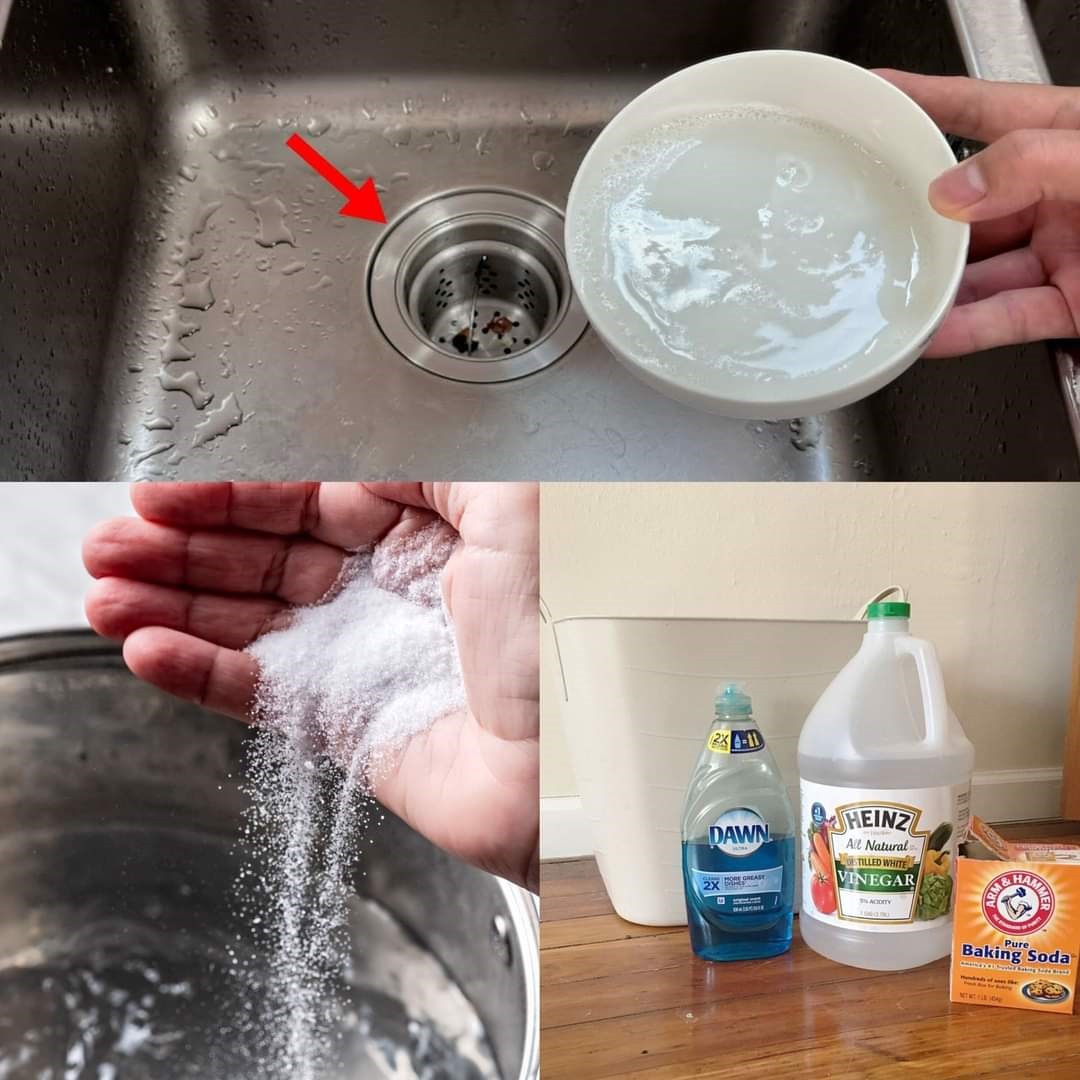Maintaining a clean and fresh kitchen sink drain is crucial for a hygienic kitchen environment. Over time, food particles, grease, and soap residue accumulate in the drain, causing unpleasant odors and potential clogs. Many people turn to harsh chemical drain cleaners to resolve these issues, but they can be expensive and may damage your pipes in the long run. Fortunately, there’s a simple, eco-friendly method that’s just as effective, using household ingredients to keep your drain clear and odor-free.
Why Kitchen Sink Drains Get Clogged
Before diving into the method, it helps to understand why kitchen drains become clogged. Common culprits include:
- Food Waste: Small pieces of food, like pasta, rice, and vegetable peels, can settle in the pipes, creating a blockage.
- Grease and Oil: When hot grease or oil is poured down the drain, it cools and solidifies, sticking to the pipe walls and trapping other debris.
- Soap Scum: Soap particles mix with hard water minerals and create a sticky film that can contribute to clogs.
With regular use, these materials build up, leading to slow drainage and foul smells. A simple weekly cleaning routine can prevent these issues and keep your kitchen smelling fresh.
The Ingredients You’ll Need
This effective DIY solution only requires a few basic ingredients that you likely already have at home:
- Hot Water: Helps dissolve and flush away grease and residue.
- Salt: Acts as a gentle abrasive, scrubbing the inside of the drain.
- Dishwashing Liquid: Breaks down grease and food particles.
- White Vinegar: A natural disinfectant that removes odors and helps break down buildups.
These ingredients are gentle on pipes but tough on grime, making them an ideal combination for regular drain maintenance.
Step-by-Step Guide to Clean and Unclog Your Drain
Here’s how to keep your kitchen sink drain fresh and clear with this simple method:
- Boil Water: Start by boiling a pot of water, which will help to dissolve and loosen any grease or buildup inside the drain.
- Add Salt: Pour about half a cup of regular table salt down the drain. Salt acts as a natural scrubber, helping to break down and dislodge particles stuck inside the pipes.
- Pour Hot Water Over the Salt: Carefully pour the boiling water down the drain over the salt. This will dissolve grease and help flush away loosened debris, especially effective for small blockages.
- Add Dishwashing Liquid: Pour a tablespoon of dishwashing liquid into the drain. Dish soap cuts through any grease or oil left in the pipes, making it easier for the remaining debris to wash away.
- Add White Vinegar: Pour half a cup of white vinegar down the drain. When the vinegar mixes with the dish soap, it will foam, creating a gentle chemical reaction that helps break down any remaining residue and neutralize odors. Let the mixture sit in the drain for about 15 minutes to work its magic.
- Flush Again with Hot Water: Finish by flushing the drain with another pot of boiling water. This will wash away any remaining debris and leave your drain clean and odor-free.
Additional Tips for Keeping Your Drain Clean
While the above method is effective for regular cleaning, here are a few additional tips to prevent buildup and clogs in the first place:
- Regular Maintenance: To keep your drain fresh, perform this cleaning routine once a week. Regular maintenance helps prevent the buildup of food particles, grease, and soap scum.
- Avoid Pouring Grease or Oil Down the Drain: Instead of pouring cooking grease or oil down the sink, let it cool and dispose of it in the trash. If you need to dispose of liquid oil, use a container designated for disposal.
- Use a Drain Strainer: Place a strainer over the drain to catch food particles before they enter the plumbing system. Empty the strainer regularly to avoid bad odors and keep water flowing smoothly.
- Flush with Hot Water Daily: Each day, pour a small amount of hot water down the drain. This practice helps prevent grease and food residues from hardening and sticking to the pipe walls.
- Minimize Food Waste Disposal: Even with a garbage disposal, large quantities of food waste can contribute to clogs. Dispose of excess food scraps in the trash or compost before rinsing dishes in the sink.
The Benefits of This Eco-Friendly Cleaning Method
Using household ingredients to maintain your drain offers several benefits over chemical cleaners:
- Environmentally Friendly: This method doesn’t rely on harsh chemicals, making it a more sustainable choice for your home.
- Safe for Pipes: Chemical drain cleaners can erode pipes over time, especially if used frequently. This natural solution is gentle on plumbing.
- Cost-Effective: Most of these ingredients are readily available at home, making this a cost-effective alternative to commercial products.
When to Seek Professional Help
While regular maintenance can prevent most issues, some blockages may require professional assistance. If you notice persistent slow drainage, water backup, or strong odors that don’t resolve with cleaning, it might be time to call a plumber. Professional drain cleaning can address serious clogs and help keep your plumbing in optimal condition.
Conclusion: Keep Your Sink Drain Clean and Fresh with a Simple Routine
Keeping your kitchen sink drain clean and fresh doesn’t have to be a hassle. With just a few common ingredients and regular maintenance, you can prevent clogs and eliminate unpleasant odors, creating a cleaner and more enjoyable kitchen space. This simple, eco-friendly method is both effective and gentle, ensuring that your sink drain remains in top condition without the need for harsh chemicals. Try this routine weekly, and enjoy the benefits of a clean, odor-free drain year-round.

